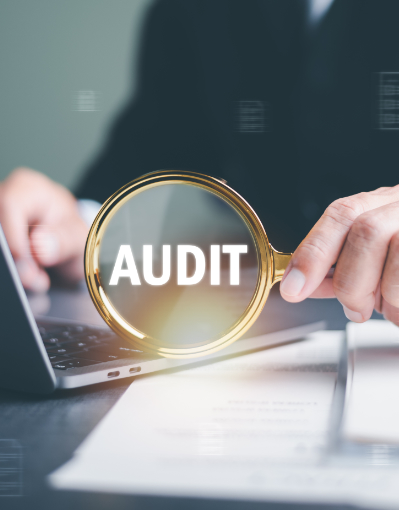Why are QMS audits required?
Our audits are performed according to ISO 19011 and adhere to various audit criteria such as ISO 13485, (EU) 2017/745 (MDR), (EU) 2017/746 (IVDR), and requirements from MDSAP countries including Australia, Brazil, Canada, Japan, and the US. All our services are conducted by experienced and qualified auditors.
Quality Management System (QMS) audits are an essential component in the lifecycle of medical devices. They ensure that all parties involved in the supply chain, from manufacturers to importers, adhere to the stringent regulatory requirements and standards required for medical devices. But why exactly are these audits so crucial?
First and foremost, QMS audits provide assurance of compliance with regulatory requirements. Regulations such as the European Union’s (EU) 2017/745 (MDR) and 2017/746 (IVDR), as well as the regulatory requirements from countries like Australia, Brazil, Canada, Japan, and the US (i.e., MDSAP countries) and ISO 13485 standard mandate rigorous internal audits or supplier evaluations. Regular audits verify that companies consistently meet these requirements, thereby ensuring the safety and efficacy of medical devices.
Beyond regulatory compliance, QMS audits help in identifying gaps and areas for improvement within an organization’s quality management processes. By conducting internal audits and gap analysis audits, companies can proactively address potential issues before they escalate into non-compliance or product failures. This proactive approach not only helps in maintaining product quality but also enhances operational efficiency.
Furthermore, QMS audits foster a culture of continuous improvement. They encourage organizations to regularly review and refine their processes, leading to better product quality and innovation. This continuous improvement is vital in a competitive industry where technological advancements and regulatory changes are constant.
QMS audits also build trust and credibility with stakeholders. For manufacturers, having a robust audit trail demonstrates a commitment to quality and regulatory adherence, which is crucial when dealing with distributors, importers, and authorized representatives. It reassures stakeholders, healthcare professionals, and patients that the medical devices they use are safe and reliable.
Finally, regular audits conducted by experienced auditors, such as those at LEXQARA, provide an external, independent, and objective evaluation of an organization’s quality management system. This external validation is invaluable in identifying blind spots and ensuring that all aspects of the QMS are functioning effectively.
In summary, QMS audits are not just a regulatory necessity but a strategic tool for maintaining high standards, fostering improvement, and ensuring the safety and efficacy of medical devices throughout their lifecycle.















